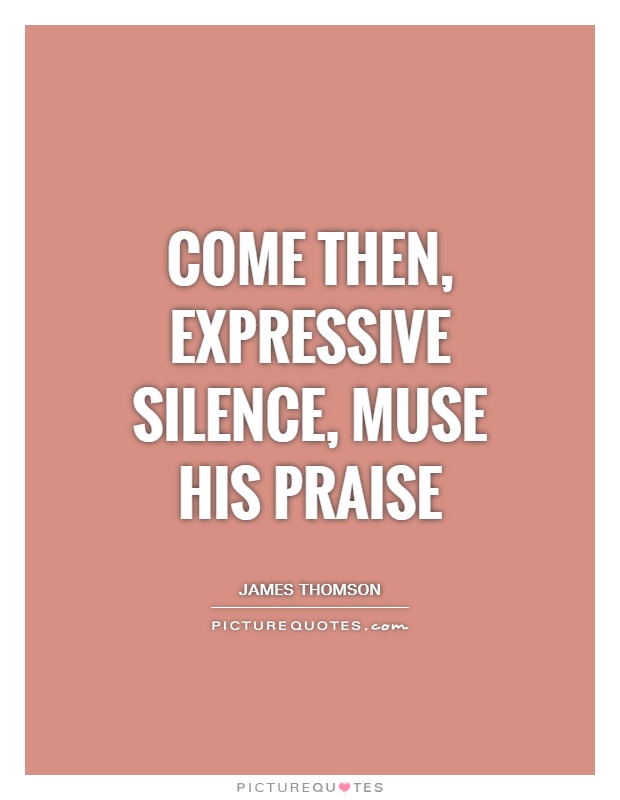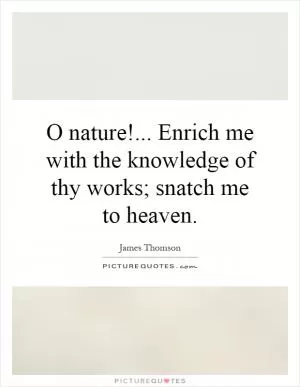Come then, expressive silence, muse His praise

Come then, expressive silence, muse His praise
James Thomson, a Scottish poet and playwright, is best known for his work "The Seasons," a series of four poems that celebrate the beauty of nature and the changing seasons. Thomson's poetry is characterized by its vivid imagery, rich language, and deep appreciation for the natural world. In his writing, Thomson often explores themes of beauty, wonder, and the divine.One of Thomson's most famous lines is "Come then, expressive silence, muse His praise," which appears in his poem "The Seasons." This line captures Thomson's belief in the power of silence and stillness to inspire awe and reverence for the natural world. In this context, silence is not simply the absence of noise, but a profound and meaningful presence that allows us to connect with the divine and appreciate the beauty of creation.
Thomson's use of the word "muse" in this line is significant, as it suggests that silence can be a source of inspiration and creativity. By inviting silence to "muse His praise," Thomson is suggesting that by quieting our minds and opening ourselves up to the world around us, we can find inspiration and insight that can lead us to a deeper appreciation of the beauty and wonder of the natural world.












 Friendship Quotes
Friendship Quotes Love Quotes
Love Quotes Life Quotes
Life Quotes Funny Quotes
Funny Quotes Motivational Quotes
Motivational Quotes Inspirational Quotes
Inspirational Quotes